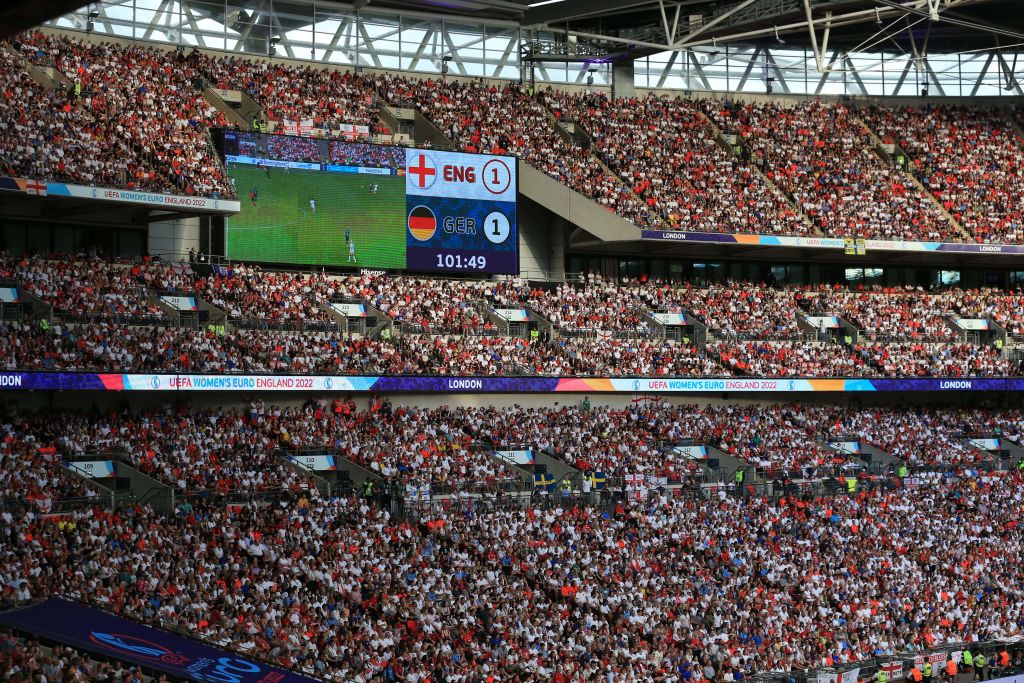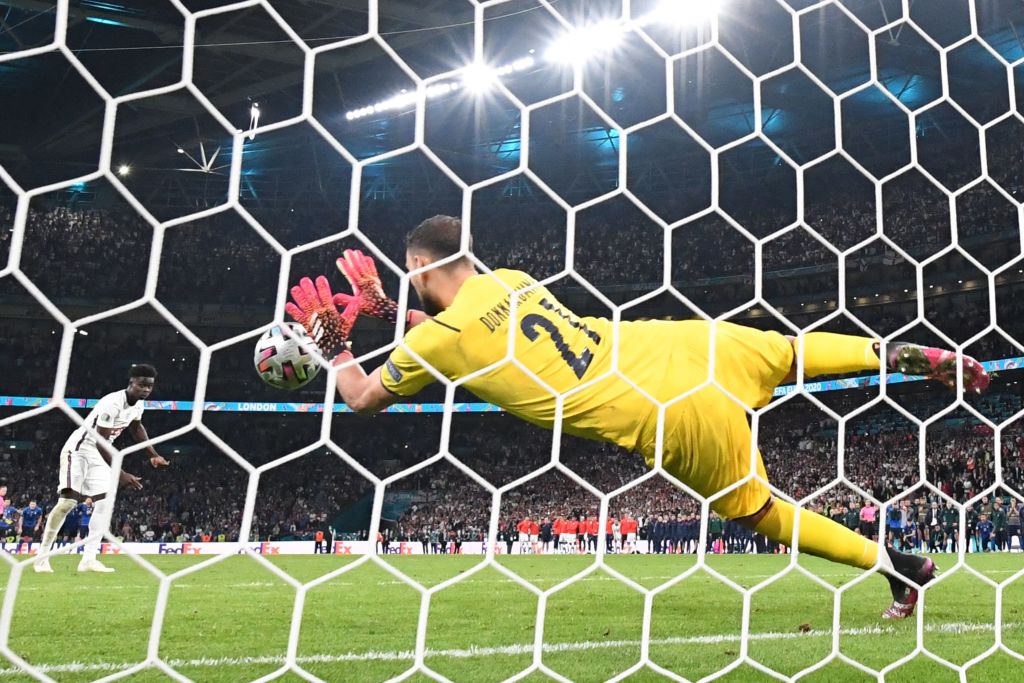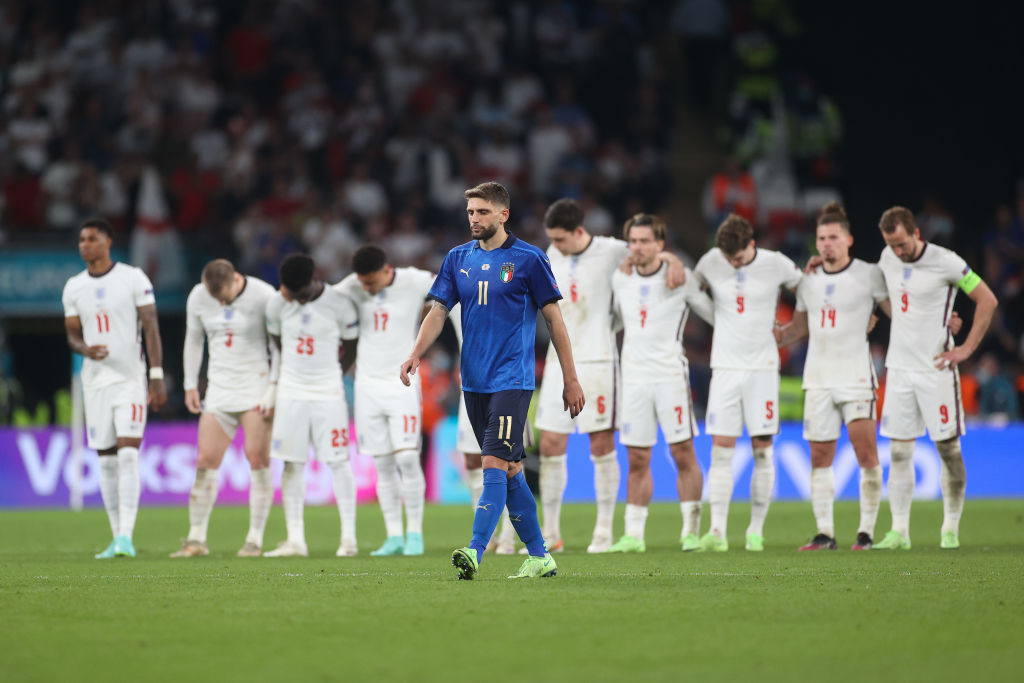
Ah, extra time: that dreaded half hour of usually dour football and constant cramp that we all have endure whenever a knockout tie cannot be decided in normal time.
Euro 2024 will be no different this summer – but after seeing different formats tried out in different configurations in various tournaments over the years, we thought it would be good to box off exactly what form it will take and when.
So, here’s your handy guide to extra time and penalties at Euro 2024, including some incredibly nerdy detail that is extremely unlikely to even become an issue but which is good to know just in case, because football is stupid sometimes.
Is there extra time at Euro 2024?

The knockout games would, yes, if the scores are still level after 90 minutes.
For the avoidance of doubt, there is no situation in which a group stage game would go to extra time.
How long is extra-time?

Two halves of 15 minutes (plus any injury time, but this tends to be minimal), with a five-minute break in the middle.
Players are usually expected to remain on the pitch during the break, though it’s ultimately at the referee’s discretion.
Are there extra substitutions allowed in extra-time?

Teams can make up to five substitutions during 90 minutes, which must be done in a maximum of three stoppages in play per team (which excludes half time).
An extra substitute can then be used in extra time, with one extra stoppage of play per team permitted in extra time. Again, half time of extra time does not count as a stoppage, nor does the gap between the end of 90 minutes and the start of extra time.
Any unused substitutions from the regulation 90 minutes carry over into extra time – so if a team has only made four subs in 90 minutes, they’re allowed to make two in extra time.
Is Golden Goal/Silver Goal still in operation?

No: neither system has been used in any international men’s competitions since Euro 2004.
Both systems were tried out around the turn of the millennium in a bid to encourage more attacking play in extra time, but had the exact opposite effect: the next-goal-wins golden goal system meant teams were terrified of conceding and became more conservative.
Only three Euros games were ever settled by the golden goal across its use in Euro 96 and Euro 2000. Oliver Bierhoff scored Germany’s winner over the Czech Republic in 1996, then France won their semi-final over Portugal four years later thanks to a late Zinedine Zidane penalty. David Trezeguet scored the last Euros golden goal, again for France, to secure victory over Italy in the final.
UEFA used the silver goal system instead of the golden goal in 2004. That system meant that if a team was leading at half time in extra time, they were declared the winners. Traianos Dellas scored the only silver goal in international football history to give surprise tournament winners Greece victory over the Czech Republic in the semi-finals.
Do games go to penalties at Euro 2024?

If two sides are level at the end of extra time in the knockout stages, then yes, it would go to penalties.
This would follow the standard ABAB format (i.e. team A takes a penalty, then team B, then team A, then team B). Some competitions experimenting with an ABBA format a few years ago to try and eradicate the slight advantage team A has in shootouts, but it was just too confusing for anybody to follow so it didn’t go anywhere.
It’s unlikely to become an issue, but just as an interesting wrinkle: if two (and no more than two) teams were absolutely completely level at the end of the group stage for head-to-head record, goal difference in all group games, and goals scored in all group games, and they happen to be playing one another in the final group game…their final placing in the group stage would be decided on penalties. Which would be great fun, wouldn’t it?
Can you make subs during a penalty shootout?

As a rule, no; any changes would have to be made while extra time was ongoing.
The only exception is if a goalkeeper were deemed unable to continue before or during the shootout due to injury or illness.
If that were to happen, and the team in question had not used its full quota of six substitutions, they would be allowed to select a substitute goalkeeper to replace them.
If the team in question had used all their subs, or had no substitute goalkeeper available (very unlikely, as unlike outfielders, you're allowed to call up another keeper to the squad if all your sub keepers become unavailable during the tournament), an outfielder would have to go in goal.
If you want to get even further into the weeds: the withdrawn goalkeeper would then not be allowed to take a penalty, and the opposition would have to exclude one of their players from the shootout to level up the numbers. This is in their own interests as otherwise the team with fewer men could potentially end up looping around to their first penalty taker faster, putting them up against the other side’s worst penalty taker.







